Fashion and Mental Health: The Power of Self-Expression and Self-Esteem
In a world where fashion is often seen as superficial, there lies a profound connection between what we wear and how we feel. Fashion isn’t just about looking good; it’s about feeling good too. Today, we delve into the intricate relationship between fashion and mental health, exploring how the clothes we wear can influence our well-being, self-expression, and self-esteem
.
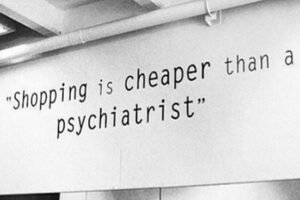
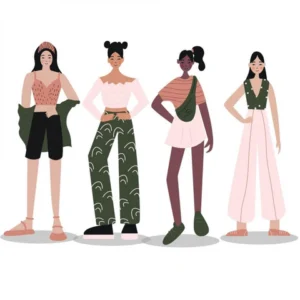
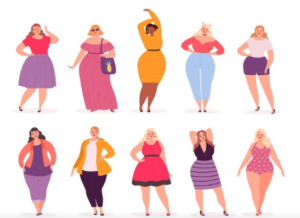 However, fashion has the power to challenge these norms and promote body positivity and self-acceptance. By embracing diverse representations of beauty and celebrating all body types, the fashion industry can foster a more inclusive and supportive environment where everyone feels seen and valued.
Moreover, wearing clothes that make us feel comfortable and confident can boost our self-esteem and improve our overall mental well-being. Whether it’s finding the perfect pair of jeans that accentuate our curves or slipping into a dress that makes us feel like a million bucks, the right outfit has the ability to uplift our spirits and instill a sense of self-assurance.
However, fashion has the power to challenge these norms and promote body positivity and self-acceptance. By embracing diverse representations of beauty and celebrating all body types, the fashion industry can foster a more inclusive and supportive environment where everyone feels seen and valued.
Moreover, wearing clothes that make us feel comfortable and confident can boost our self-esteem and improve our overall mental well-being. Whether it’s finding the perfect pair of jeans that accentuate our curves or slipping into a dress that makes us feel like a million bucks, the right outfit has the ability to uplift our spirits and instill a sense of self-assurance.
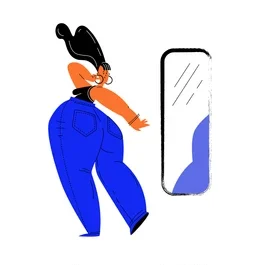
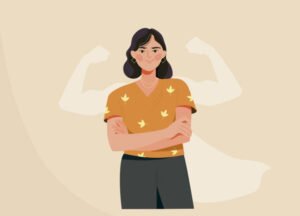 So the next time you slip into your favorite outfit or treat yourself to a shopping spree, remember that fashion isn’t just about looking good; it’s about feeling good too. Embrace your unique style, celebrate your individuality, and let fashion be a source of joy, confidence, and empowerment in your life. After all, when you look good and feel good, the possibilities are endless.
So the next time you slip into your favorite outfit or treat yourself to a shopping spree, remember that fashion isn’t just about looking good; it’s about feeling good too. Embrace your unique style, celebrate your individuality, and let fashion be a source of joy, confidence, and empowerment in your life. After all, when you look good and feel good, the possibilities are endless.

Retail Therapy: More than Just Shopping
We’ve all heard of retail therapy—the act of indulging in retail purchases to improve one’s mood or alleviate stress. While some may dismiss it as frivolous, there’s actually a psychological basis behind it. Shopping for clothes can provide a temporary escape from the pressures of everyday life, offering a sense of control and empowerment. However, it’s essential to recognize the fine line between healthy shopping habits and excessive spending as a coping mechanism. While treating yourself to a new outfit can lift your spirits, it’s crucial to address underlying issues and seek healthier coping strategies for long-term well-being.
Self-Expression Through Style
Fashion serves as a powerful form of self-expression, allowing us to convey our personality, values, and identity without saying a word. The clothes we choose to wear can reflect our mood, aspirations, and cultural influences, serving as a visual representation of who we are. Whether it’s embracing bold colors, experimenting with different styles, or wearing statement pieces that make us feel confident, fashion allows us to celebrate our individuality and express ourselves authentically. By curating our wardrobe according to our preferences and tastes, we can cultivate a sense of self-awareness and empowerment that positively impacts our mental health.
The Impact of Fashion on Self-Esteem
Our relationship with fashion extends beyond aesthetics; it also plays a significant role in shaping our self-esteem and body image. In a society inundated with unrealistic beauty standards, many individuals struggle with feelings of inadequacy and low self-worth when comparing themselves to idealized images portrayed in the media. However, fashion has the power to challenge these norms and promote body positivity and self-acceptance. By embracing diverse representations of beauty and celebrating all body types, the fashion industry can foster a more inclusive and supportive environment where everyone feels seen and valued.
Moreover, wearing clothes that make us feel comfortable and confident can boost our self-esteem and improve our overall mental well-being. Whether it’s finding the perfect pair of jeans that accentuate our curves or slipping into a dress that makes us feel like a million bucks, the right outfit has the ability to uplift our spirits and instill a sense of self-assurance.
However, fashion has the power to challenge these norms and promote body positivity and self-acceptance. By embracing diverse representations of beauty and celebrating all body types, the fashion industry can foster a more inclusive and supportive environment where everyone feels seen and valued.
Moreover, wearing clothes that make us feel comfortable and confident can boost our self-esteem and improve our overall mental well-being. Whether it’s finding the perfect pair of jeans that accentuate our curves or slipping into a dress that makes us feel like a million bucks, the right outfit has the ability to uplift our spirits and instill a sense of self-assurance.

Conclusion: Finding Empowerment in Fashion
In conclusion, fashion is more than just fabric and stitches—it’s a means of self-expression, empowerment, and self-care. By recognizing the connection between fashion and mental health, we can harness its transformative power to enhance our well-being and embrace our true selves. So the next time you slip into your favorite outfit or treat yourself to a shopping spree, remember that fashion isn’t just about looking good; it’s about feeling good too. Embrace your unique style, celebrate your individuality, and let fashion be a source of joy, confidence, and empowerment in your life. After all, when you look good and feel good, the possibilities are endless.
So the next time you slip into your favorite outfit or treat yourself to a shopping spree, remember that fashion isn’t just about looking good; it’s about feeling good too. Embrace your unique style, celebrate your individuality, and let fashion be a source of joy, confidence, and empowerment in your life. After all, when you look good and feel good, the possibilities are endless.
